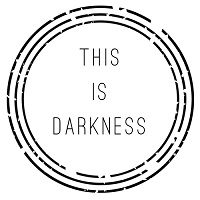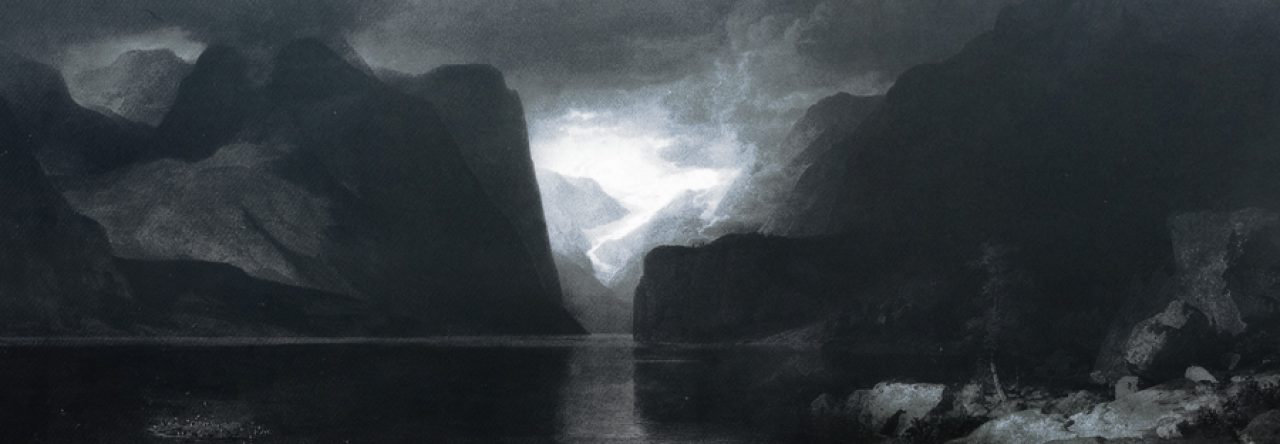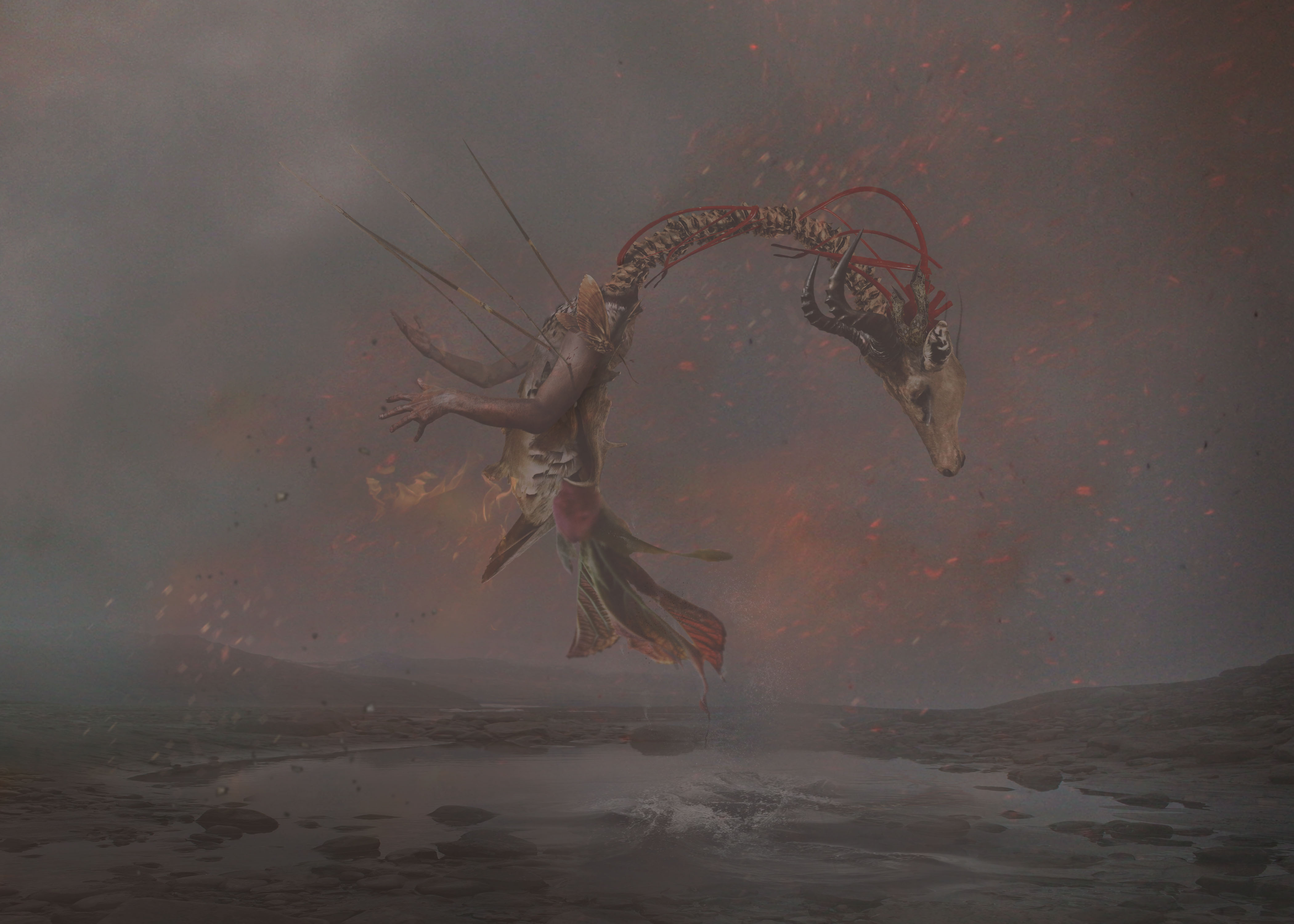10. General Advice
a. What are the best aspects of creating dark ambient?
Kammarheit: It is a great tool for dreamers and introverts. The music allows us to go on adventures in our own minds, which is a wonderful thing. The music can be a helping hand to reach other worlds for a moment. A tool to express or re-create these worlds. For me, it began as a way to deal with insomnia and a way to explore a certain type of environment I kept picturing in my head. The music kept me occupied and was a good companion, that made sure I was still experiencing a sort of dream world, even if I couldn’t sleep. Today, it is so implemented in my life that I can’t imagine being without the mindset this music puts me in. An everyday feeling of awe.
Aegri Somnia: Freedom and endless possibilities of sound design. You really can do what you want, how you want.
Seesar: For me, the best aspects of creating dark ambient music are the incorporation of my most exciting influences and my lifestyle into a creative form, resulting in artistic output that I can embrace, with the possibility of making it my vocation. The musical possibilities are unlimited, and always exciting, and ever inspiring. The dark ambient genre continually provides an body of works that truly is enriching and unequaled.
The genre is only a mile wide, but a thousand miles deep.
– Simon Heath (Atrium Carceri)
Skadi: For me, dark ambient creation is a catalyst of emotions. As some people use a diary to write down their thoughts, producing dark ambient music is also a method to “write” down the feelings. Dark ambient gives the best opportunity to express yourself. Creating dark ambient music is a true relief.
protoU: The opportunity to play with listeners’ minds. You can manipulate and influence them. It makes me feel like a cool kid, that makes grown-ups live a fantasy through sound.
Shrine: The joy of the music.
Sonologyst: It gives you the possibility to be in deep connection with your profound states of mind.
Taphephobia: I improvise a lot. So, for me, it is to create something that used to be completely unknown to me, in the first place. To create something I hadn’t imagined or known about before.
Treha Sektori: The surprises, the physical experience.
b. What are the worst/hardest aspects of creating dark ambient?
Ugasanie: For me it’s an idea, a concept. If I do not have an idea or any history (I call it “have a legend”) – I will not create anything. Just because it does not work. For me, this is the basis. When I have an idea, I start to hear how it should all sound.
Treha Sektori: Not repeating yourself.
Kammarheit: Staying awake in the studio is the hardest aspect of creating this kind of music. Once a meditative loop is playing, I feel the urge to lay down and start dreaming. I take more naps in my chair than I care to admit. And, I have the back problems to prove it.
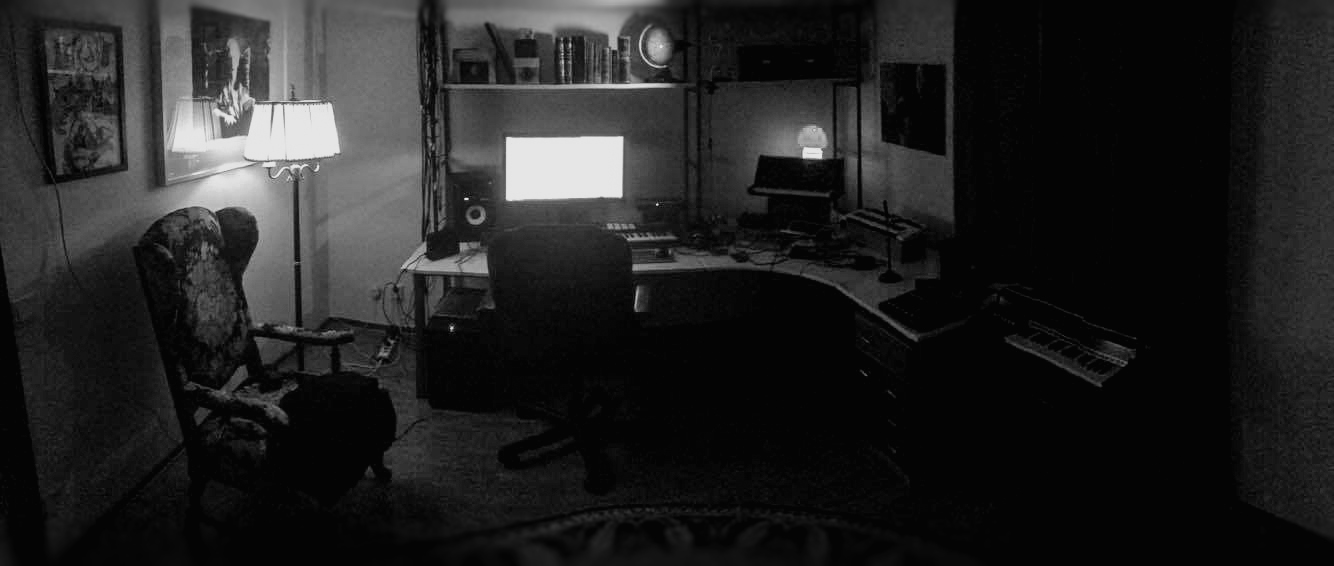
Pär Boström’s studio
Mebitek: To be original, and to create non-boring things.
Seesar: Perhaps, not repeating musical motifs to a fault. I have many compositional and performative favourites. So, reusing them is something that happens occasionally. I have to regulate my use of certain sounds and dynamic patterns, to ensure I do not risk my pieces sounding the same. But, also, without losing sight of my stylistic traits I have honed. There is a balance I must observe, but it is not so much of a hardship. Rather, a challenge that assists in formulating my personal contribution to the body of works in the genre.
Skadi: When you have to deal with thoughts/emotions, which you want to transfer to music, but you’re not able to. It’s hard to have sounds and melodies in your head, but cannot put them together as a track. That’s probably the hardest aspect of dark ambient, for me.
protoU: The darkness of it sometimes comes into your life, but it is only a matter of your mindset and control. I am very emotional, empathic, etc., but I try to manage that currently.
Shrine: The pain of the music production, in case you care about good sound quality.
Sonologyst: There aren’t bad aspects, for me.
Taphephobia: There are times when I feel numb, and every time I record something, it sounds uninspired. It can be really hard. It is also hard, when you have a deadline and you just feel drained after work or other activities that have nothing to do with the music.
c. What are some things that an amateur should avoid doing at all costs?
Shrine: Instead of talking only about things that should be avoided, I’d rather share some general thoughts here:
It is best to check your mixes on different sets of speakers. If you can only have one pair, get the biggest ones you can afford (only if your room is big enough). Listen to your mixes really loud for a moment – the human ear’s frequency response is not linear, and it will deceive you, if you listen quietly all the time. Get a pair of studio headphones (not hi-fi, they are usually biased), and use them to check details when composing and mixing. Never mix only on headphones, though. And, never do mastering on headphones. Avoid low quality sound sources (be it synths or samples). It will be hard or impossible to fix later. Understand the essence of equalization. Why it is important to achieve loud and powerful mixes. Understand the essence of compression and side-chain compression, and why they are important to achieve loud and powerful mixes. Know what dynamic range is, and why is important. Know what a headroom is, and why is important. Understand the difference between perceived loudness and actual loudness Learn how to use loudness measuring tools. Do not use dynamic-range measuring tools, though. They don’t understand ambient. Remember that, when it comes to loudness and sonic power, less is more. A track with too many sounds will never achieve the same level of perceived loudness as a track with fewer sounds. And finally, but most important of all, take long breaks from the music you are working on. It’s a common psychological phenomenon that, when you spend too much time on something, you stop seeing (hearing) it realistically. Taking a break that is at least a couple of days long will show you the difference between good music and boring music the next time you listen. I, personally, delete about 70% of everything I compose. At the time of composing, all sounds great. But, a week later… not so much.
Treha Sektori: Try to succeed at any cost. It’s by falling that we find our way.
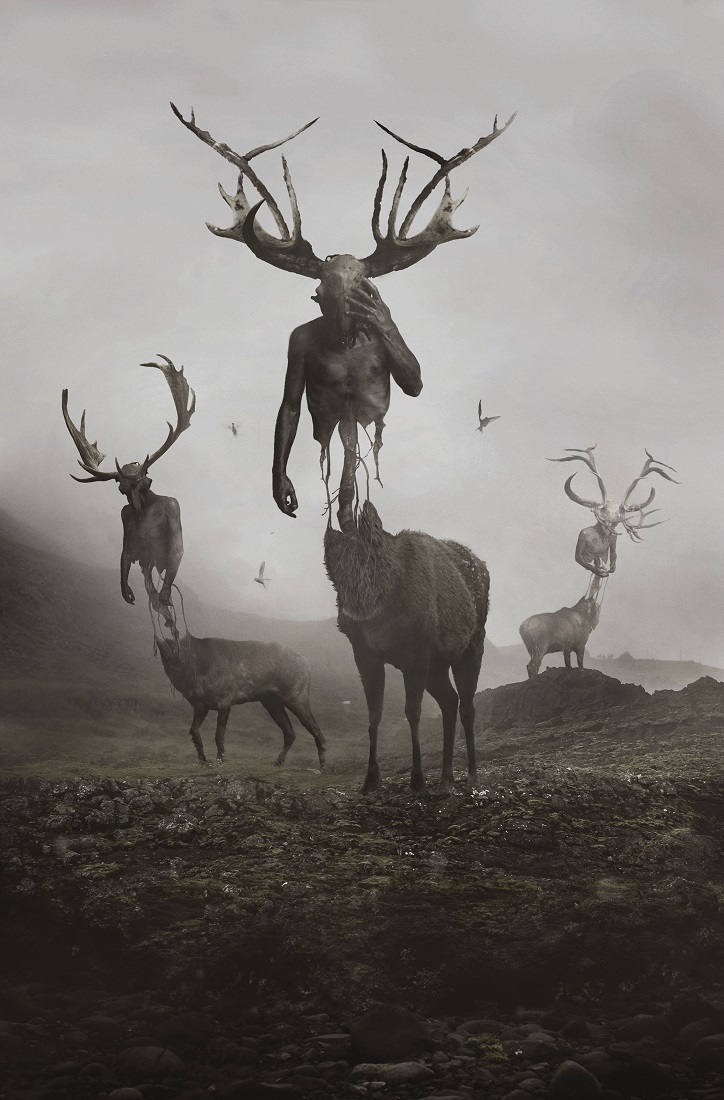
Artwork by: Dehn Sora / Treha Sektori from ‘The Sensation of Being One of Them’ artbook.
Stuzha: Spending lots of money on equipment, and not using it afterwards!
Mebitek: You can do all for free, as you can find some good, free VST’s and a good, free DAW (Reaper).
Seesar: I would suggest, rushing the completion of new works could be an issue. Take your time and develop your pieces. Try not to fall into traps of producing tracks that are easy to make. Making dark ambient music need not be difficult, but hastily creating a work can result in a lack of reflection that will be quickly noticed by fans and critics. Furthermore, seek something unique to inject into the genre. Respecting and utilizing staple musical elements of the genre is completely acceptable, of course. But, introducing personalized nuances to your tracks will not only gain fans, but also a means to cultivate your self-expression, and carve your niche in dark ambient music.
Skadi: First off, spending too much money into equipment, without knowing if you will stick to music production or not. Secondly, starting to think that your production is crap. Even if the early work sounds less impressive or complex, it’s still a part of the composer. If you don’t like aspects of your tracks, try to improve them to get better. Defining one’s own work as crap will most likely stop the composer from producing more.
protoU: Using samples without permission of the author. Using ambient as a way to convey very bad emotion.
Ugasanie: Lack of interest in what you are doing. Also, do not adjust to someone, do not copy their sound, effects, and/or tricks.
Taphephobia: Don`t try to copy others. Make your own signature sound. Don`t ask people how to do everything for you. It is good to ask for advice, when it comes to creating music, but don`t let others do the steps for you.
d. How frequently should an artist aim for releasing albums (several times a year?, once a year?, once a month?)
Kammarheit: I have tried both things. An album each ninth year and a few albums each year. I can’t say for sure what I think is the best. I seem to have an endless need for exploring and expressing things with music. If I have put my heart into an album, and I feel that it is truly completed, and that I have lived it, then I think it should be released. Just don’t be one of those people who have a hundred albums that all sound the same, on their Bandcamp page. Or, even worse, hundreds of albums that don’t seem to have anything in common. Not everything we create needs to be made public.
Shrine: Once a month? Seriously? Unless your aim is to release uninspired cheap cliches that have been done hundreds of times already, this seems like a really bad idea. You better take your time.
Treha Sektori: Which ever time they feel that it is the right moment.
Stuzha: Quality vs quantity… In music, the former is, and always will be, more important. Take your time.
Seesar: That entirely depends on your level of professional engagement, your support of your releases, and your connection to labels or other means of disseminating your works. If you are planning and able to support your releases with live tours, then releasing full collections of tracks should be less frequent. However, if you are primarily a studio artist, then producing more works and making them available online should be far more frequent. In either case, you should always compose and release a variety of tracks in smaller settings, such as compilations and stand-alone videos, continually, to keep your fans interested in your music and aware of your style. For me, I prefer to release three full albums a year, and approximately eight to ten tracks on compilations or videos. I perform live, when possible. But, the regularity of live performance fluctuates depending on many factors. Regardless of frequency, I recommend playing live to support your music as much as you can. The combination of live shows and recorded releases is invaluable for the professional dark ambient artist.
Skadi: It’s helpful to improve the awareness of people by releasing one or even more albums per year. However, I don’t think that any producer should force his or herself to produce albums. Dark ambient is very personal and emotional, and so the emotions and situation should fit during the creative phase.
protoU: I think several times a year is more than enough.
Sonologyst: Every artist has to find their own way for that. It’s impossible to give general advice. In my case, I found the good and natural rhythm working on one release a year. And, I don’t exclude to increase the interval between two works. That allows me a major deepness, awareness and consciousness of what I’m going to do. Basically, I start a work when I really have something to communicate. After I’m aware of that, I need time to explore how to communicate it.
Taphephobia: It is impossible to say, because labels do not always release the music right after it is finished. Personally I find it kind of confusing when artists for example release 5 records in a year. But, that is me. Do they make music all the time, or they just make some fast McDonald’s ambient to spread to the masses!?
Ugasanie: However it goes. I try to release an album when I feel that the album is ready and everything is in place. How many times a year? It does not matter. Of course, I would like to do this more often. But I work on two jobs almost without days off for 12 – 16 hours a day. I do not have much time for music. All that I create is done contrary to circumstances and because of a lack of sleep.
e. Should a musician know the history of the genre before creating their own music?
Treha Sektori: I don’t think so. Might be even more interesting to have your own work without knowing any standards and get into it with virgin ears.
Aegri Somnia: Absolutely. What is the point, if you do music and don’t know the history nor are you a fan of the specific music genre that you have decided to make.
Stuzha: Not at all.
Mebitek: I think that is not important. A musican should know what he’s doing. That is enough.
Seesar: Before creating their own music? No, not necessarily. Should an artist know the styles and their development within dark ambient music? Absolutely. If not coming into the genre, then learning over time as you embrace the genre. It is a useful means to cultivating your own style, being aware of what is happening in your area of music, and, of course, it is fun and exciting. That being said, creating new works without a depth of knowledge of the genre is perfectly acceptable, and can assist in creating new directions and forms. Either way, engaging in your music with creative fervor is the key, no matter how much you inform yourself about the genre beforehand.
Skadi: It’s not required but recommended to know at least some history of dark ambient.
protoU: I think a musician should be aware, but it is not some kind of school or university. So, there are no strict rules here. Maybe, music naturally comes out of a person’s mind, before knowing it is dark ambient. Before knowing what it’s about.
Sonologyst: Not necessarily. But, it would be a crime to ignore all that beautiful music created in the latest decades.
Taphephobia: Some basic knowledge is important, like knowing what not to do.
I personally stay away from an elitist way of thinking. Good music is good music. Freedom to make music to be the music you want is more important than having the right records in your collection. Personally, I don’t care what the creator is listening to at home, or how much he/she knows about the genre. If they don`t know anything they would probably make other kind of music.
f. What advice would you give to a person just coming into dark ambient, as a potential artist?
Kammarheit: Spend time with your concept, know what you want to express. Have patience and don’t expect your music to instantly sound like the perfect mixture of all the established bands you like so much. Maybe, start as a minimal drone project, and gradually add more elements to the music. See what you can do with the equipment you already have. And most of all, don’t sit and wait for inspiration. Open the program or connect the equipment and see what happens. Do this a few times and inspiration should come. At least, that is how these things works for me. Procrastination is for the soul crushing everyday tasks, not for creativity.
Procrastination is for the soul crushing everyday tasks, not for creativity.
– Pär Boström (Kammarheit)
protoU: I would recommend to listen and absorb nature and the city. Dark ambient has no strict rules or limits. It is about nature, environment and feeling. So, as long as you listen to the surrounding and get the vibe of it, you will convey it nicely into a dark ambient track.
Atrium Carceri: Innovate, don’t imitate. Have a vision of what you want the listener to experience. Think visually if going for a cinematic vibe. What do the sounds represent? Be clear on why sounds are panned to where they are in the mix. If the audio was a soundtrack for a movie, what would the scene look like? Once you get a clear picture of the scene, you can start building it up as an audio representation. The click of a blinking tail light from a crashed car. The hiss of smoke from the smashed hood. The sway of trees in the wind. Gravel creaking as the subject walks from the left side of the screen (speaker) to the right. The freedom to build scenes like this is what separates dark ambient from other genres. Have fun with that.
Treha Sektori: Dig, fail, try again.
Sonologyst: Work with passion and don’t be in a hurry. Don’t release huge amounts of music, just to show the audience what is going on. That is a mistake many people make. The process of improving your own style should be something private.
Taphephobia: Find the music program you are most comfortable with using. And, learn to play an instrument. You don’t have to be a really good musician, but it will make it much more interesting, and it gives the music a very personal feeling. Learn to make drones and a good flow. There is nothing worse than a track that sounds unfinished, and lacks this flow. Never give up, even if you get some bad feedback. It is more important to have friends that say what they really mean, than friends that tell you it is good because they are afraid to hurt your feelings.
Skadi: Listen to your inner self. Listen to your emotions. Let it flow into the music you want to create. Try not to please other people with your music, but produce music you like. Don’t be ashamed, be inspired by other bands. Find your own way and style, step by step.
Ugasanie: Do the music that you like most. Do the music you want to listen to yourself.
Aegri Somnia: Take your time. The only imortant thing is that you like what you do.
Stuzha: If you do music, do it only for you. Others might like it, but don’t be disappointed if they don’t!
Mebitek: Be original and always experiment!
Seesar: Listen, reflect, and be inspired. Dark ambient music is a form of composition and performance that draws heavily from emotion and intelligent critical thinking simultaneously (as with many forms of creativity, of course, but particularly in the case of dark ambient). Research your influences. That does not mean specifically other dark ambient artists. In my case, it means reading Lovecraftian fiction and learning about Italian Futurist composition and aesthetic concepts. Whatever drives you, embrace it. Allow it to assist you in formulating your compositions and personal style. Use what means you have at your disposal to inform your particular nuances. Know you are entering into a very unique and welcoming genre, where assistance, discussions, collaborations, and camaraderie are constants. Enjoy and flourish!
A few more explicit pieces of advice I may impart include: be sure to explore the treatment of your sounds and samples, to find methods you prefer and timbre you want. Then, compose afterwards. Creating a new piece can be approached in a plethora of ways, from recording tracks and manipulating them, to taking samples and building a soundscape from those, to live, untreated sound production. Find the compositional approach that suits you and your aesthetic best, including the treatment of sounds to make your composing faster, more enjoyable, and professional.
Also, take the time to analyze your methods and music periodically. Assess whether or not you feel you are engaging with your music as you would like. Are you wasting time? Are you getting the sounds you want? Are you getting the number of releases you expect? Do you feel your work is professional? Is your business as a dark ambient artist composer and performer reaching the goals you set for yourself, creatively and financially? By taking just a few moments on occasion to think about some of these questions, you can find strengths to embrace and less strong areas to improve, keeping your music fresh and your work as a professional musician moving forward.
Conducted by: Michael Barnett
Next: Dark Ambient 101: Artists’ Sites & Social Media
Read the full article.
